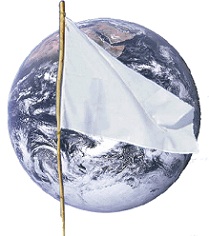 Too often national identities do not correspond to the ethnic and linguistic nuclei that make up the diverse cultures corralled by state borders. This gives rise to serious internal conflicts, which are often, in turn, the sequel of wars and conquests.
Too often national identities do not correspond to the ethnic and linguistic nuclei that make up the diverse cultures corralled by state borders. This gives rise to serious internal conflicts, which are often, in turn, the sequel of wars and conquests.
However, the socio-political consciousness has evolved in recent centuries to give worldwide expression to fundamental principles recognized in the Universal Declaration of Human Rights, signed in 1948 by all States and Governments of the world. This consciousness is flowing into a new concept of supranational sovereignty, which in turn, recognizes the rights of ethnic minorities and their aspirations of representation.
In the XX century, the great powers allocated territories and permitted the creation of new states on the basis of the Wilsonian principle of self-determination. The Fourteen Points made by President Wilson in 1918 lead to the formation of a league of nations to protect "mutual guarantees of political independence and territorial integrity to great and small nations alike”. The principles for the equitable distribution of territories formerly dominated by European empires were the driving force and the central element in this approach. Yet most of today's national and ethnic conflicts cannot be settled by a renewed revision of boundaries to give each national community a State of its own. Such is the complicated plight of the Kurds claiming self-rule in an area spreading through the borders of Iraq, Iran, Turkey and Syria. But others ─Basques, Abkhazians, Chechens, Tibetans, etc.─ are vying for secession from larger States on account of a historical ethnic identity that they perceive as a right to national rule. Ethnic differences by themselves do not foster this tendency, but the group’s own psychological perceptions and preferences clashing with those of other politically dominant sectors of the country where they live.
Ethnicity and nation do coincide in only about 15 of the world’s 194 independent States and in almost one-third of those 179 heterogeneous societies the largest ethnic groups do not even constitute a majority. Therefore, States bent on extinguishing smoldering embers of ethnic strife without the traumatic surgery of secession must make it possible for restless national groups to carry on their life free from alien rule. The principle of self-determination, firmly grounded in the UN Charter as a source for a wide range of declarations and treaties, started as a worldwide recognition of the rights of people subjected to colonial regimes to take the helms of their own destinies. It has taken further roots in the articles of state responsibility promoted by the International Law Commission, designating the obstruction of a people's right to self-determination as one of a handful of state crimes against humanity.
Today, a new scheme ─that is less territorial in character but more regional─ supplements the principle of self-determination. Such a "states-plus-nations" approach, originally advanced by the Foreign Affairs magazine in the early 90s, requires functional spaces and special functional zones across state boundaries, "the creation of national home regimes in historical lands, the grant of a recognized status to national communities that have no state of their own, the design of unions between peoples, as distinct from territories, as well as an approach to issues of national identity and rights that differentiates between nationality and state citizenship."
In other words, the peoples of the world are thus empowered to demand legitimately an international entitlement to participatory forms of government as the widely accepted corollary to the right of self-determination. In addition, a states-plus-nations framework does not preclude territorial compromises; it widens the menu of options when territorial changes do not suffice or when they are altogether ruled out.
The European Parliament has given back representation to ethnic and linguistic minorities through the democratic process. Therefore, European nations or ethnic groups spreading beyond State boundaries have a way to defend and promote their interests in a coherent manner before a unified supranational body.
The concept of State sovereignty depends more and more on the concept and rule of citizens’ sovereignty. Accordingly, States have no powers per se but those obtained through the mandate of the people or people's they represent. Raison d'état or even "state security" must be subservient to the interests of each and every one of its citizens, where the expression of State’s sovereignty must be intimately linked to the unrestricted implementation of human rights and fundamental freedoms. Heavily centralized governments have neither the moral nor the legal reasons to exist.
To avoid anarchy, State cohesion and a coherent policy are required. But the obligation to respect and accept the scrutiny and the intervention of the people in the decisions that shape their own destiny, is the prerequisite for the rule.
____________________
Other related readings:
Comments powered by CComment